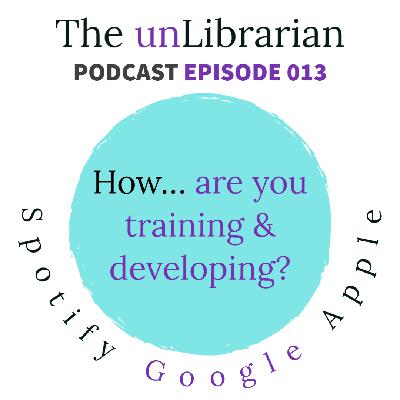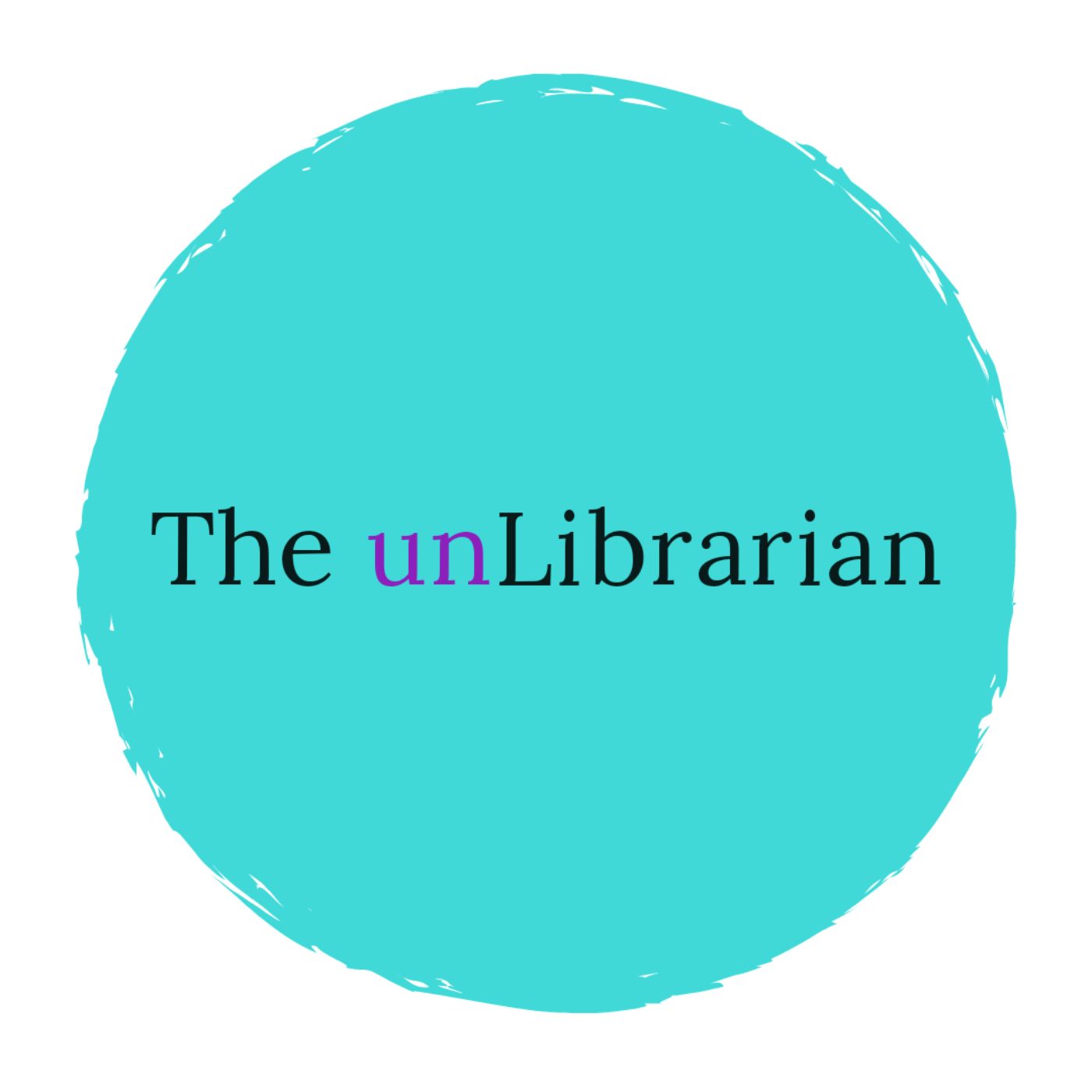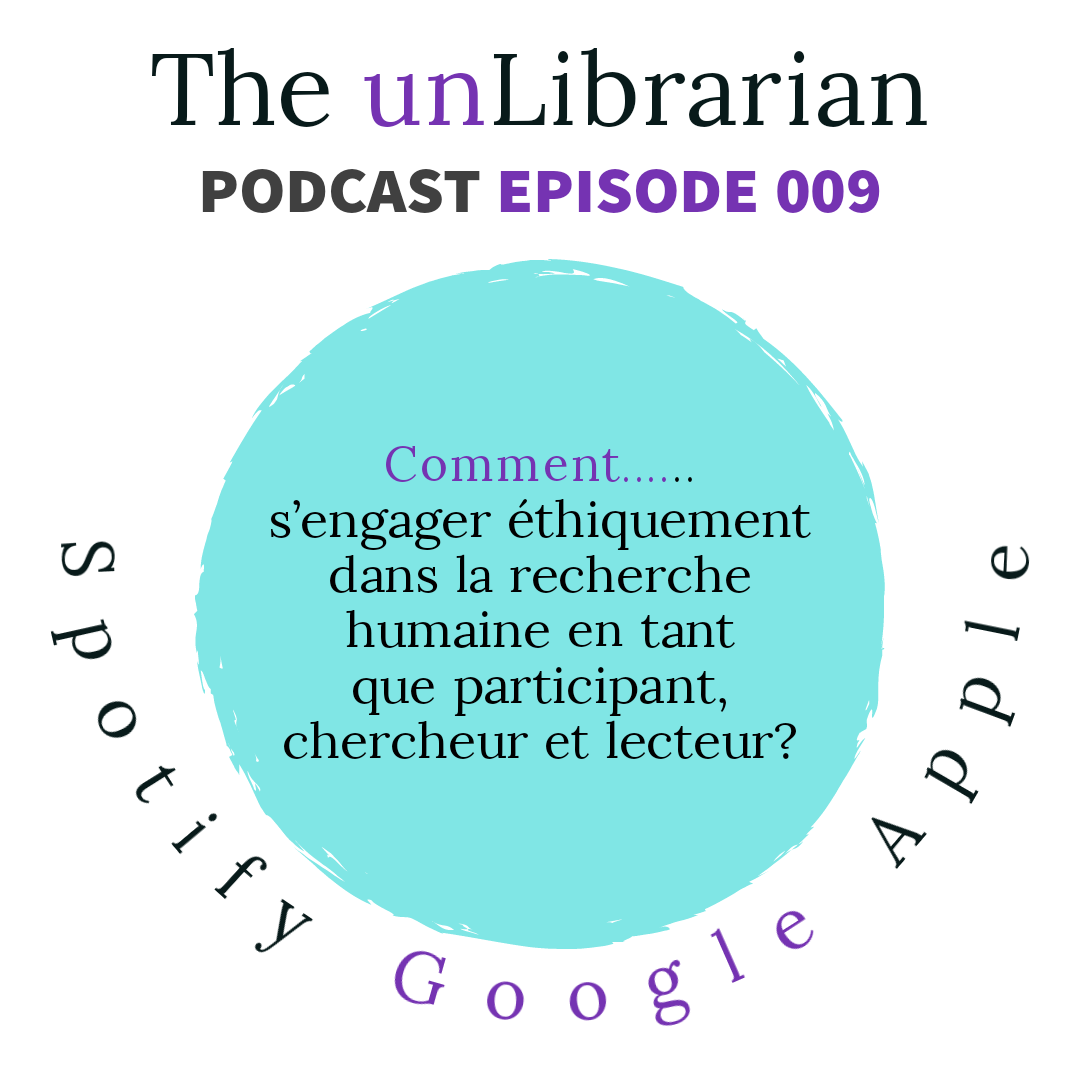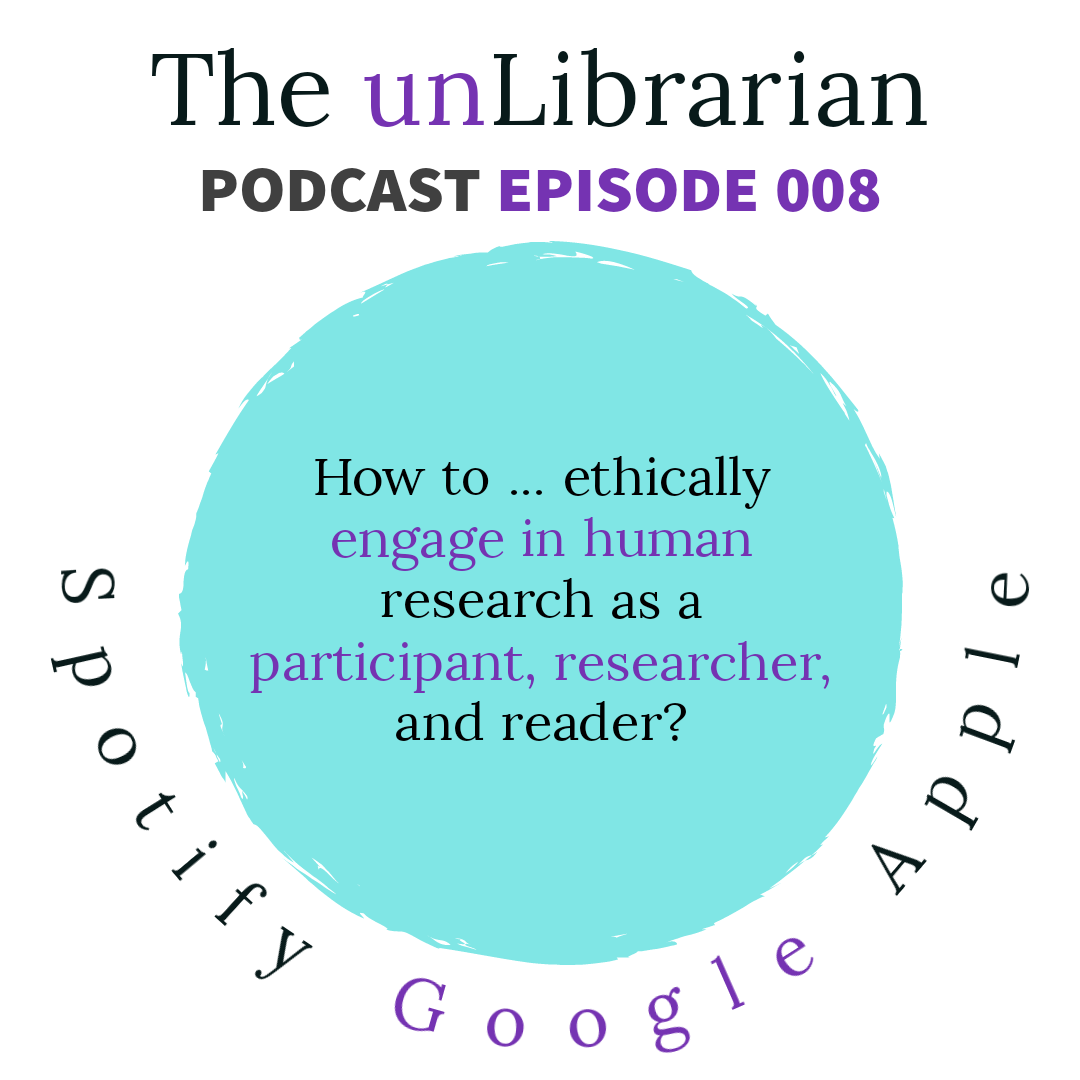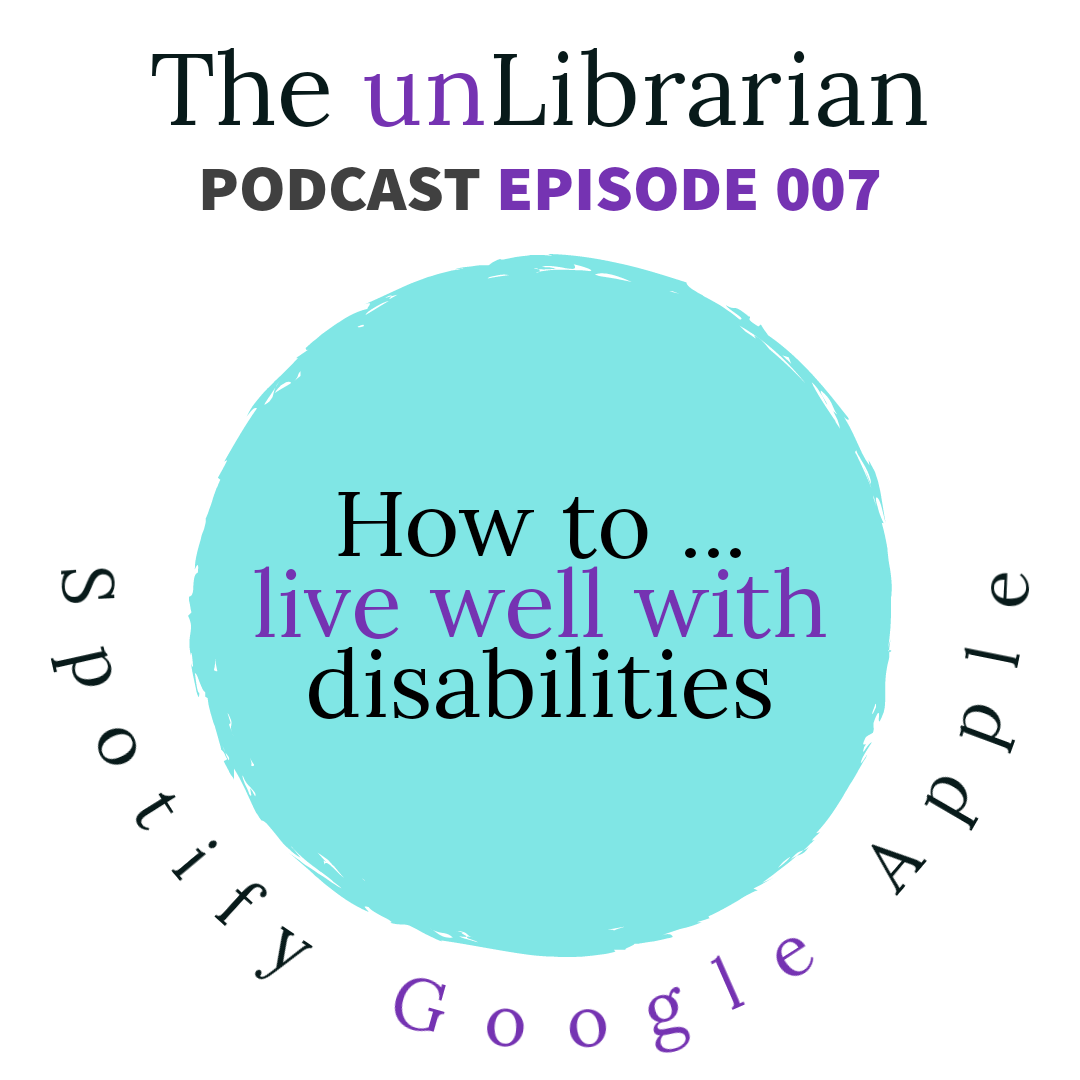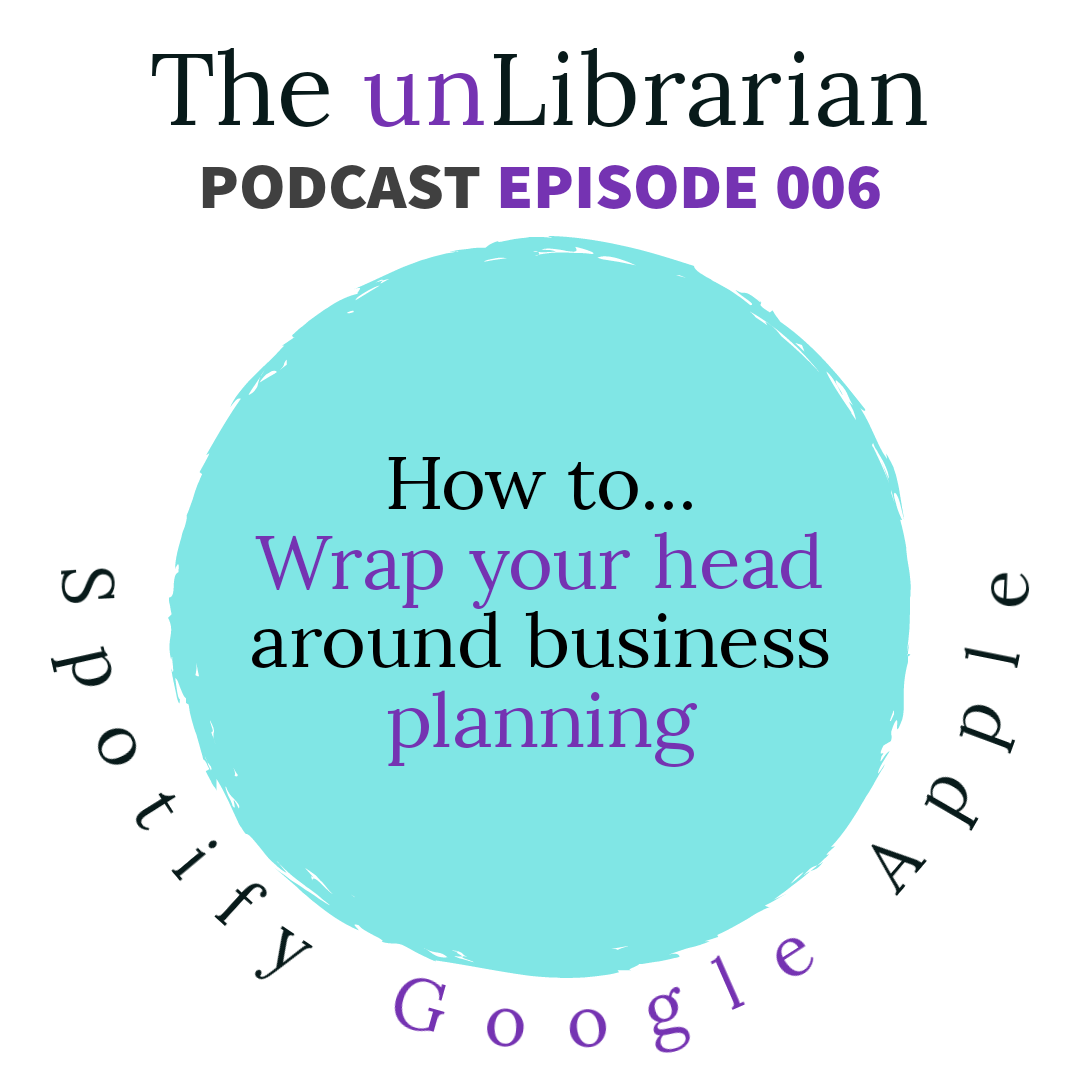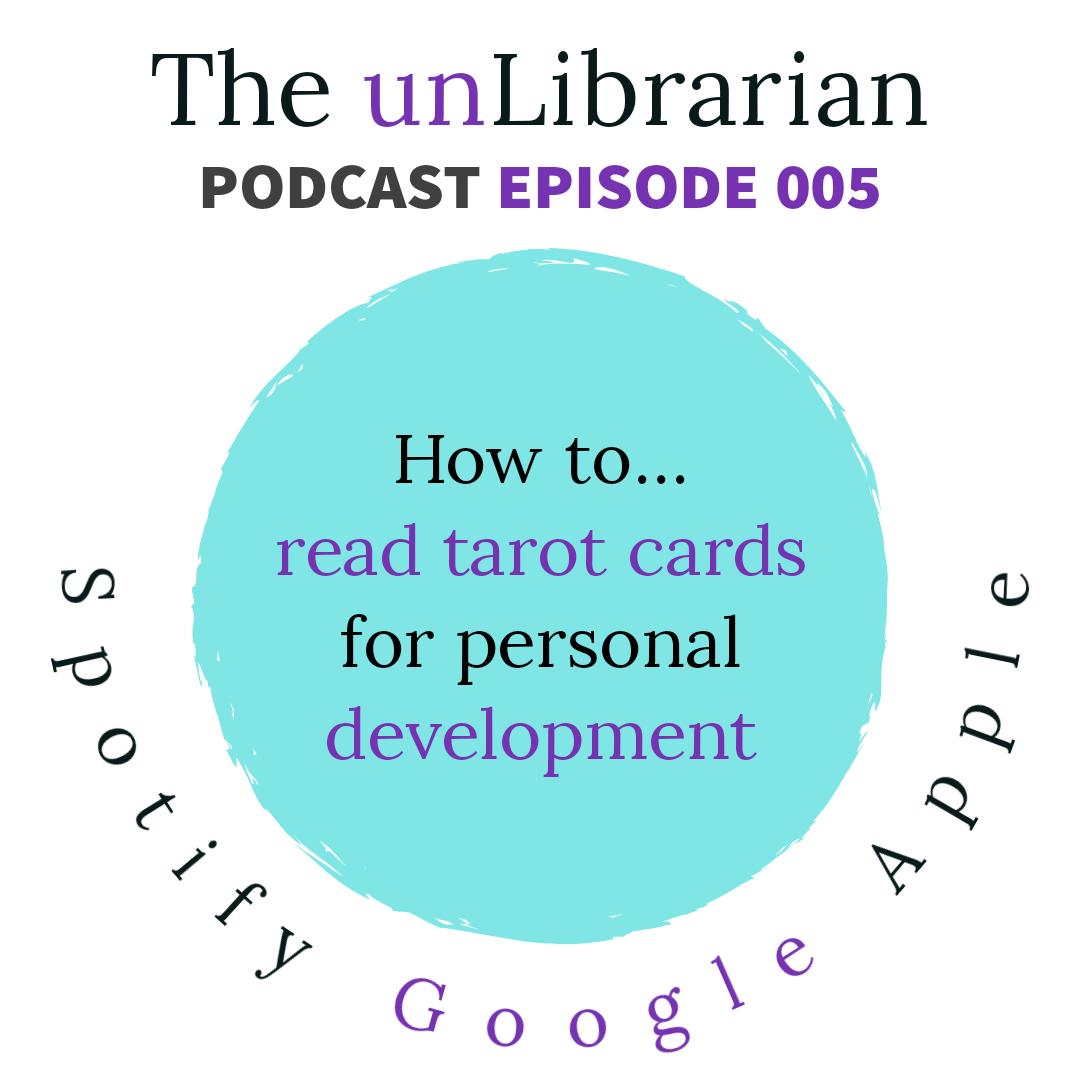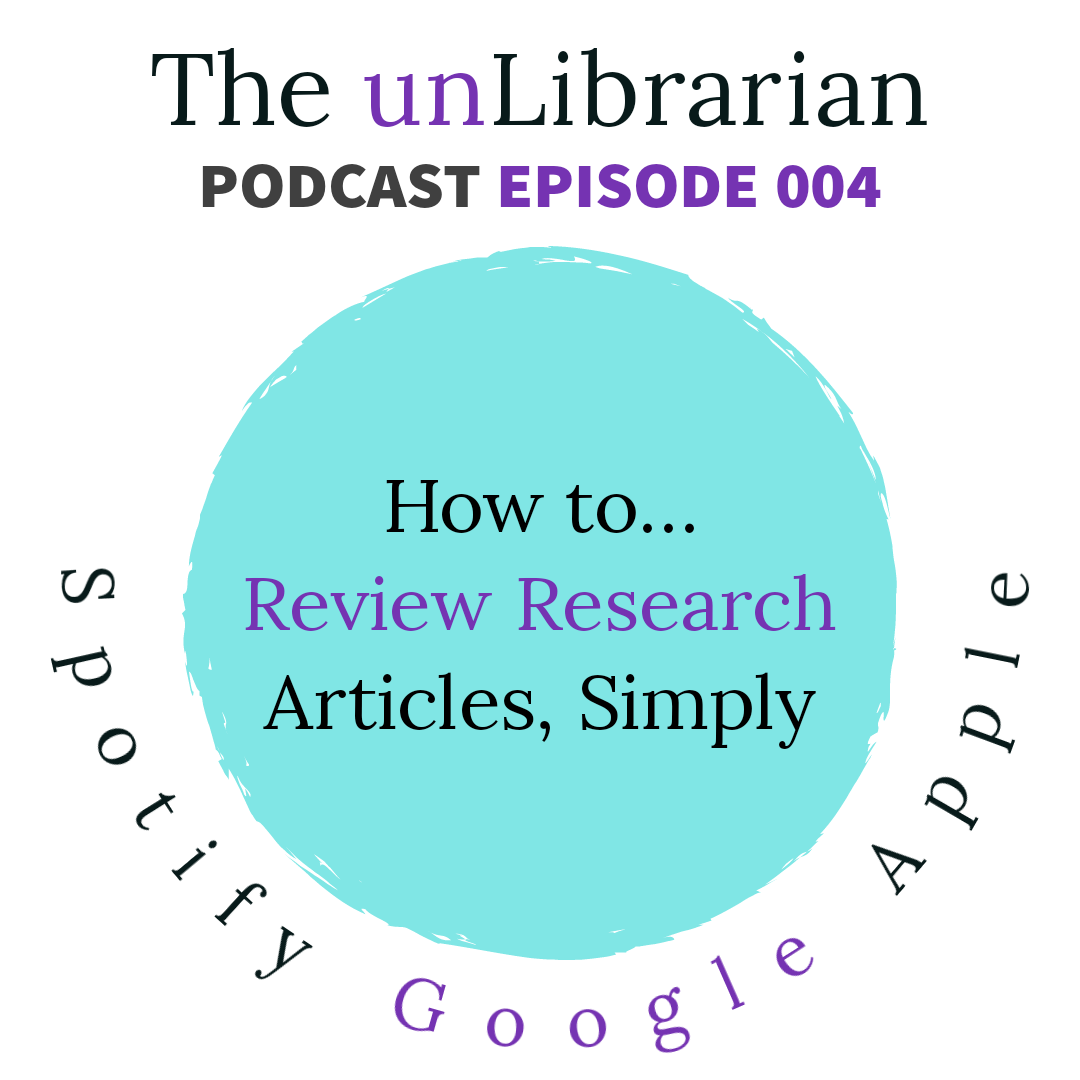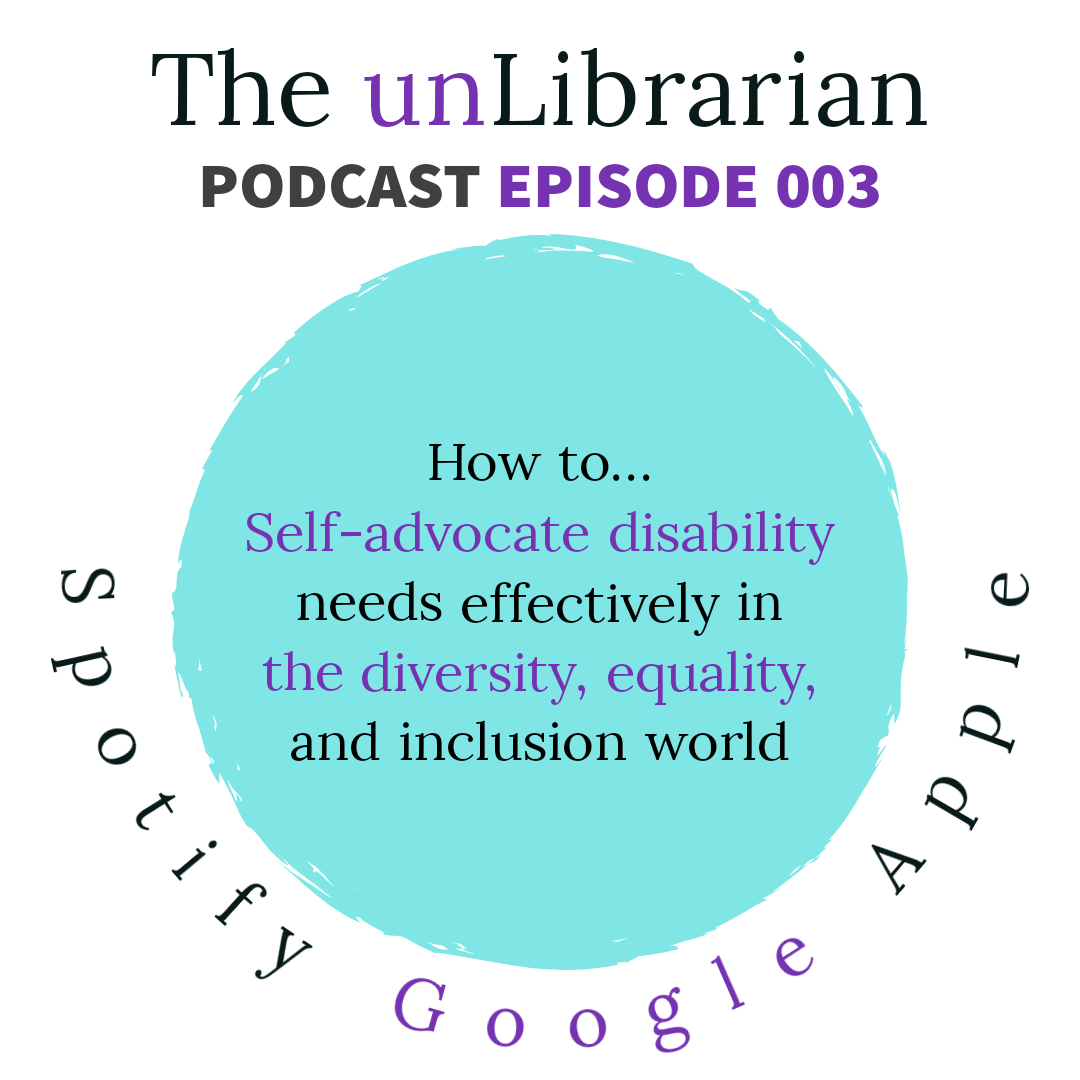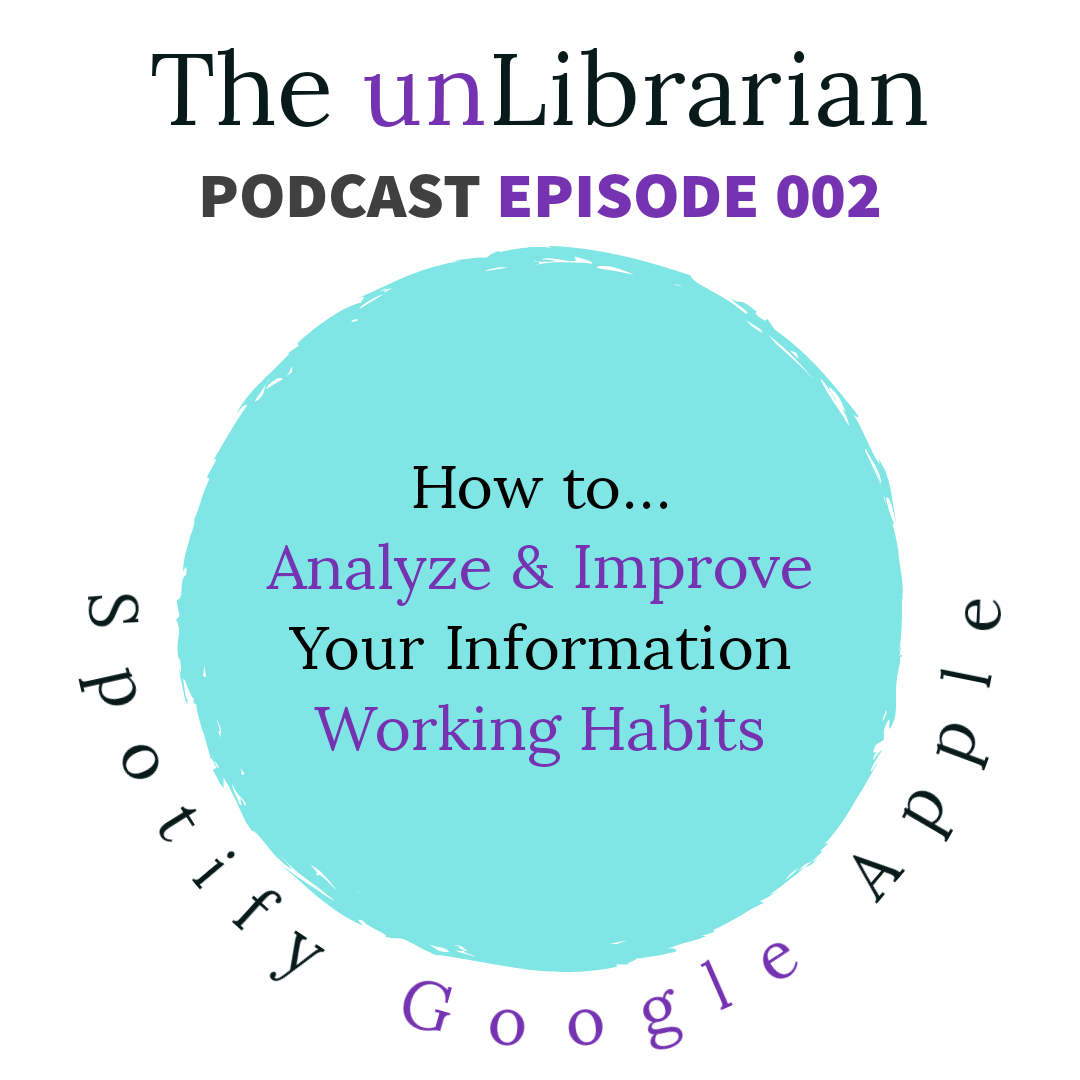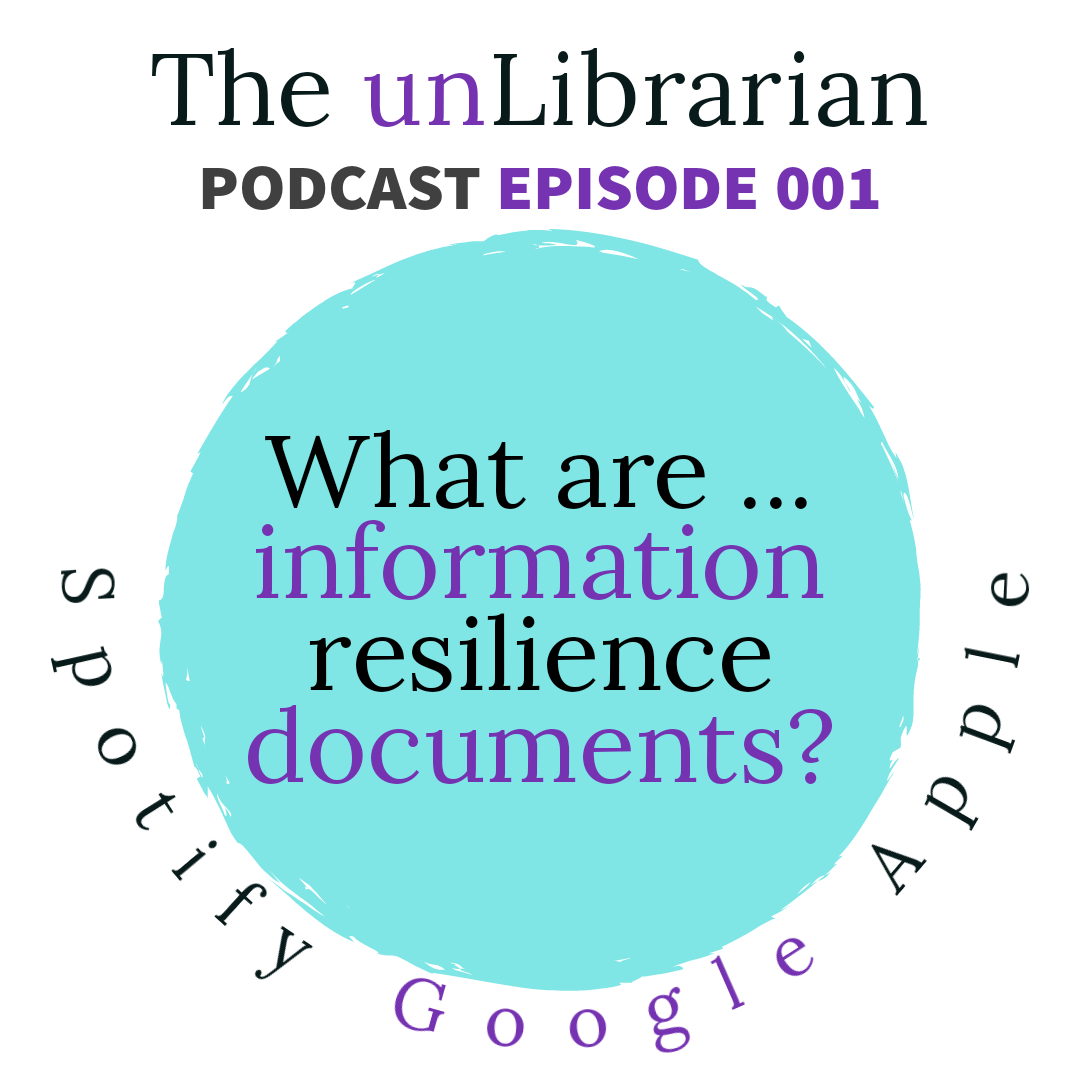Discover The unLibrarian
The unLibrarian

The unLibrarian
Author: The unLibrarian
Subscribed: 0Played: 0Subscribe
Share
© 2022
Description
The unLibrarian is an interdisciplinary, evidence-based, librarian who has gone rogue to advise folks on information organizing, to try to make the world a better place for the next generation of those with disabilities and neurodiversities, entrepreneurs, librarians, and curious minds alike through information resilience.
13 Episodes
Reverse
Hello, and welcome to another episode of the unLibrarian. Today we’re talking about how to go about training oneself to do the work that must be done, especially as your own business. Last episode talked about organization: how you're organized, your processes, your documentation, your information and resilience. Today, we're going to focus on training. Training can sometimes be free, it can sometimes be expensive, it can sometimes be life teaching you something, or learning from a mentor or from a friend. Education and learning happen all the time, and it's beautiful when that is maximized. There are different types of training, and many transferable skills that can be taught and taken with you from profession to profession. Want to know more about these skills and how to trian them? Click play and tune in to this week’s episode! In This Episode: [0:19] How do you train yourself to do the work that must be done? [2:49] What are some of the different kinds of training one should consider looking into? [6:58] How can finding the right person or training help you avoid information overwhelm? [10:52] What training do you need? [12:15] Self training versus external training: which is better? [14:07] The importance of continuous learning, and how it benefits your life and business. Wondering from which training you could benefit? Hire The unLibrarian to do a Working Habits Review https://www.theunlibrarian.com/service-page/working-habits-review For more information, visit the website www.theunlibrarian.com
Hello, and welcome to another episode of The unLibrarian. In this episode, the unLibrarian is talking us through why it’s important to be organized, and how it can impact our life in ways we may not have originally considered. Imagine how many frustrating moments could be avoided if you just take some time to get organized before the moment arrives! We also learn about the value of understanding different styles of organization, and why getting started really is the best way to figure out what you need and how to accomplish it! If you’re someone who struggles with getting organized, or you know you need to but would like to have a partner along for the journey, click play and tune in! In This Episode: [0:54] How are your resources organized and why does it matter? [1:54] What does charging your phone or computer have to do with being organized? [2:24] Can being organized help to reduce the level of frustration you experience? [8:23] How do you figure out what you need to get organized? Get started! [12:51] Understanding each other’s organization style. [15:05] The importance and impact of being organized in your life and business. If you'd like a partner along the way, check out my "Working Habits Review" service. Oh, and no worries, I have Pomodoro style followups available afterwards to assist with long term maintenance. Podcast can be found on Spotify, Apple Podcasts, Google Podcasts and others. Work with the unLibrarian: Click Here! For more information, visit the website www.theunlibrarian.com
Hello, and welcome to another episode of The unLibrarian. In this episode, The unLibrarian is getting into the 3 pillars of resilience, and how to implement them into your life and business so that you can weather whatever life decides to throw at you! Whether you have systems in place to serve you or not, this episode is a great look into what you need, and what may be a good idea to add if you haven’t. Is your business heavy on faith but lacking in organization? Does your company take care of the data, but put less priority on training? These are some of the things being discussed in today’s episode! In This Episode: [1:00] What are the 3 pillars of resilience? [3:38] Why is organization the structural backbone of your business and how do you best support it? [4:21] Why is professional development important to building resilience? [5:30] Where does belief factor into the resilience equation? [7:12] How do you move from the intellectualized concept of resilience and put it into actual practice? [11:35] The Christian and The Witch! [16:45] The impact of heart and soul. For more information, visit the website www.theunlibrarian.com
Hello, and welcome to another episode of The unLibrarian. In this episode, The unLibrarian s taking us deep into the realm of deafblindness. What is it by definition? Why can it be challenging to identify if a person has an impairment? How can you as an educator or librarian create a naturally inclusive environment to include deafblind folks? These are just a few of the insightful, thought-provoking and impactful questions examined in this episode! In This Episode: [0:27] What is Deafblindness? [3:07] Why is it difficult to identify people who have partial impairments? [5:52] What does a person need to be able to use in order to be functional within society? [12:50] Where does reading factor into the deafblindness equation? [16:00] How does the “Person first, disability second” mentality fit into disability awareness training? [17:03] Can you do your job blindfolded? To schedule a consult to discuss how to navigate teaching and managing those with disabilities: https://www.theunlibrarian.com/disability-advisory-services For more information, visit the website: www.theunlibrarian.com
Bonjour, et bienvenue à un épisode avec The unLibrarian. Avez-vous déjà participé à un sondage? Avez-vous profité de l’occasion pour participer à une étude de recherche ou à un groupe de discussion? Cette semaine, nous plongeons dans les détails en matière de recherche éthique avec les êtres humains. Comment vos renseignements seront-ils utilisés? Qui est responsable de la sécurité de vos données? Comment votre vie privée sera-t-elle respectée? Qu’est-ce qui est censé figurer sur une lettre de consentement? Ce ne sont là que quelques-unes des questions que The unLibrarian essaie de clarifier dans cette itération courte mais douce du podcast. Dans cet épisode : [0:56] Quelles sont les quatre pierres angulaires des les éthiques de la recherche avec les êtres humains? [1:25] Avez-vous déjà participé à la recherche? [2:19] Quel est l’objectif de la recherche éthique? [4:00] Quelles sont les considérations éthiques? [7:48] Qu’est-ce qui sont les enjeux pour s’engager dans une nouvelle demande? [10:25] Qui est responsable de quoi en termes d’information, de confidentialité, de sécurité et d’où vos informations sont utilisées? [16:33] Que devriez-vous écrire dans une lettre de consentement? Pour de plus amples renseignements, visitez le site Web : www.theunlibrarian.com
Hello, and welcome to an episode of The unLibrarian. Have you ever participated in a survey? Have you taken the opportunity to sit in on a research study or focus group? This week we’re diving into the details where ethical research is concerned. How will your information be used? Who is responsible for keeping your data safe? How is your privacy going to be respected? What is supposed to be found on a consent letter? These are just a few of the questions that the unLibrarian is clearing up in this short but sweet iteration of the podcast. In This Episode: [0:56] What are the four cornerstones of human rights? [1:25] Have you ever been a participant in research? [2:19] What is the objective of ethical research? [4:00] What are ethical considerations? [7:48] What goes into making a new request? [10:25] Who is responsible for what in terms of information, privacy, security, and where your information is used? [16:33] What should you look for in a consent letter? For more information, visit the website: www.theunlibrarian.com
Hello, and welcome to an episode of The unLibrarian. This episode talks about earning any sort of living with disabilities. While many episodes of The unLibrarian podcast will be breaking down complex topics and making them simple, some episodes need to be for change. Some episodes need to be recorded from the heart and real life experience in order to capture the truth behind what we do every day, because it takes some doing. You have to want to work in order to get it done. You have to see that working is better than doing nothing. Sometimes that can be hard to see when pain or obstacles are stacking up, but getting to the other side of it is so important to living a fulfilled life. If you’re someone who struggles with the day to day undertakings surrounding your job, family and life in general because you live with a disability, this episode may be worth a listen. You aren’t alone. In This Episode: [1:20] Earning a living with disabilities can be quite an undertaking. [2:50] If you’re learning, you have an open mind. [4:26] We have forgotten how to be a village. [6:20] Human beings are not black and white, they are a spectrum. [10:33] The identity of disability. [13:50] You’re never in trouble, we’re always learning together. [15:37] Every disability has an advantage. For more information, or to inquire about our advisory serives, please click here: https://www.theunlibrarian.com/disability-advisory-services For more information, visit the website: www.theunlibrarian.com
Hello, and welcome to an episode of The unLibrarian. This week's episode is going to be a little more serious than last weeks about using Tarot cards for personal development, but still rather interesting despite the drier topic! Today we’re going to be talking about business plans and strategic planning. More specifically, how to approach, and wrap your mind around them so that you can create an ever-evolving document that excites and inspires you! In This Episode: [0:32] Today we’re going to be talking about business plans. [1:20] What are the differences between a corporation, a nonprofit and a sole-proprietorship? [3:24] What should you consider when you start your strategic planning? [8:55] How does a business plan help you to secure funding for your initiatives? [11:22] How do bylaws work within a nonprofit and how does it differ from corporations? [14:30] How can a non-profit benefit from operating like a profit-based corporation? [15:37] Helpful agencies in Canada that can assist you. [19:42] Your business is important to the community, demonstrate that! Get assistance with your business plan: https://www.theunlibrarian.com/strategic-development For more information, visit the website: www.theunlibrarian.com
Hello, and welcome to another episode of The unLibrarian. Since it’s October, today’s episode is all about Tarot. More specifically, today’s episode is all about Tarot readings for personal development. For a long time, Tarot has had a bit of a mysterious and taboo reputation, but as time change and eclecticism is becoming more widely accepted in personal and professional spaces, Tarot is making its way into personal development discussions and for a very good reason: A Tarot reading can provide a lot of insight into a person’s situation. If you’ve ever been curious about a Tarot reading, listen to the episode and then follow the link in the show notes to learn more! In This Episode: [0:45] How The unLibrarian became introduced to Tarot, and how has that relationship developed over time? [2:18] What is Tarot for personal development? [4:38] Who is using Tarot in their personal and professional lives? [6:44] Similarities between different belief structures and religions, and how Tarot fits into those similarities. [8:28] Books and resources that could be helpful to you on your Tarot journey. [10:00] Watch out for scammers! How to navigate the online tarot reading space, and where to find reputable tarot readers locally. [14:12] What is a legacy and what relevance does Tarot have where your legacy is concerned? [16:25] Trust your instincts with Tarot To Book a Tarot Reading: https://www.theunlibrarian.com/tarot For more information, visit the website www.theunlibrarian.com
Hello, and welcome to another episode of The unLibrarian. Today’s episode, simply put, is all about how to locate and review research articles. How do you determine if the article is qualitative or quantitative? Is it a whitepaper or not? What is P value and why is it important to the validity of research? These are just a few of the questions that have answers on today’s show. So grab a cup of something warm, sit back and enjoy learning all about reviewing research articles, the simple way. In This Episode: [0:30] How The unLibrarian became familiar with articles, reports and research papers, and how you could potentially benefit. [2:22] What are white papers? Who does the research? How are they helpful? [3:25] How to conduct a search for gray literature on an organizational website. [6:43] The difference between qualitative and quantitative articles. [7:55] The significance of P value, and how to apply and understand a null hypothesis. [12:50] How Google Scholar, a Scopus index, and the PubMed list on iOs help journal titles. [14:48] What makes a good academic article? [16:33] How long does a systematic review take and why is it a good idea to get support? To Have your work checked out by The unLibrarian before publication: https://www.theunlibrarian.com/service-page/article-review-service?category=4f3bf335-4ea0-42c5-81c1-c878cb586cd4&referral=service_list_widget Coupon Code: ReviewMe To Submit your white paper to the database: https://www.theunlibrarian.com/white-papers-database For more information, visit the website www.theunlibrarian.com
Hello and welcome to another episode of The unLibrarian. Today’s topic is all about self advocacy in life and in the workplace, when living with neurodiversities or disabilities. While the world is making positive steps in the realm of diversity, equity and inclusion for things such as culture, gender, and sexual orientation, there seems to be resistance when the discussion shifts to including those with disabilities. With so much onus falling to the person with the disability, I draw focus to navigating everyday life, trying to find support and resources, trying to ensure that the assumptions of others won’t create issues within work or personal relationships, as well as being considered equal or “just as good” as their neurotypical colleagues. Self advocacy when you live with disabilities is more than a full time job. Is there any help or support available? Tune in to this episode of The unLibrarian to explore the reality of navigating life landscapes with disabilities and neurodiversities. In This Episode: [1:28] What is truly possible in life with disabilities and how much of your possibilities will rely on your self advocacy? [3:33] Humans are innately curious, but what does that mean in regards to your interactions with others regarding your disabilities? [5:37] Who is responsible for the accommodation and support of a person living with disabilities? [8:55] Is money a silent reason why more workplaces aren’t being inclusive of disabled candidates? [10:17] How do organizations use the information they collect from diversity surveys? [13:35] Advocating for yourself and ensuring that you have the resources and support you require is a full time job. Is there help out there? [14:50] What is a 30 second advocacy speech and how can it help protect you from the assumptions of others? To purchase your own guide to develop your self-advocacy skills, you may purchase a digital booklet at: https://www.theunlibrarian.com/product-page/advocating-for-the-self Also available in French: https://www.theunlibrarian.com/product-page/se-plaidoyer-pour-soi-meme To get the booklet 50% off: SelfAdvocacyPodcast For more information, visit the website www.theunlibrarian.com
Hello, and welcome to the second episode of The unLibrarian. Today is all about turning our focus more internal and talking about your working habits. What habits do you have that can improve your working process? What habits do you have that are perhaps hindering it? How do you figure out where your strengths are and maximizing those? All of this and so much more in depth analysis can be found within this episode. Click play and figure out how your habits regarding information adds up! In This Episode: [1:25] How can you get into your own working habits without being harsh? [245] What is meant by information work habits? [4:35] How does having so many different devices available to us impact our information work habits? [8:55] How to list out your access points, workplaces and databases. [13:00] The benefits of having your files organized and in proper working order. [15:55] Guidelines to follow for getting to know your own information and work habits. [16:45] What little tricks can you pick up from others to help with your own information working habits? To review and set up a system for your information working habits, click here https://www.theunlibrarian.com/service-page/working-habits-review For more information, visit the website www.theunlibrarian.com
Welcome to the very first episode of The unLibrarian! This show is designed to give you the tools and information you need to bring ease, grace and steady progress into your business as simplistically as possible. How can I streamline My processes to make things easier for myself, my team and my clients? How can I keep track of my goals, progress and performance? How can I provide guidance to my team or my clients without them needing to wait for me to be available? If you’ve ever asked yourself questions like this, you’re in the right place. In today’s episode, The unLibrarian takes us through Information Resilience Documents, and how they can be used to support your objectives. In This Episode: [0:55] What is information resilience and how do you achieve it? [2:02] A shining example of an information resilience document: A New Brunswick Home Buyers Guide. [8:35] Who would these documents best serve? [11:00] An example of a robust resilience system: Libguides. [12:10] How these documents help to create structure and set a solid foundation for business owners and team leadership. [15:55] What to include in a resilience document. [19:40] Why is terminology important and how is it addressed in these documents? To Book The unLibrarian for support with your Information Resilience Documents click here https://www.theunlibrarian.com/service-page/resilience-document-creation For more information, visit the website www.theunlibrarian.com


